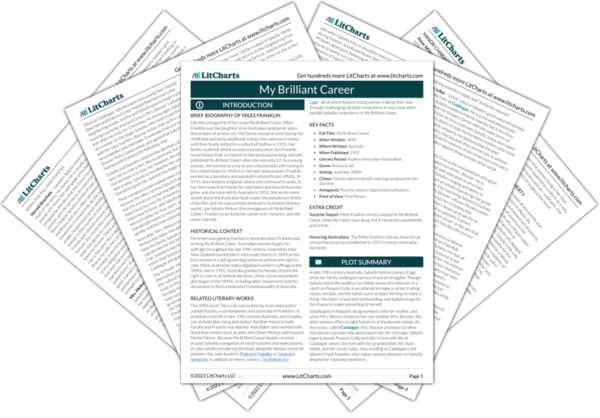The Bossier family’s perception of the vagrants as “sneaking creatures” dehumanizes these men. Sybylla recognizes that poverty is too pervasive to be the fault of the poor, but her family members prefer to blame the vagrants for their own misfortune. This lack of both empathy and social awareness is the first indication that Caddagat might not be the flawless sanctuary Sybylla wants it to be. Although Sybylla loves her family at Caddagat, they have never experienced poverty as she has. When Sybylla suggests helping the beggars on a larger scale than simply feeding them, Julius’s unsympathetic response highlights the upper class’s disregard for the poor.
